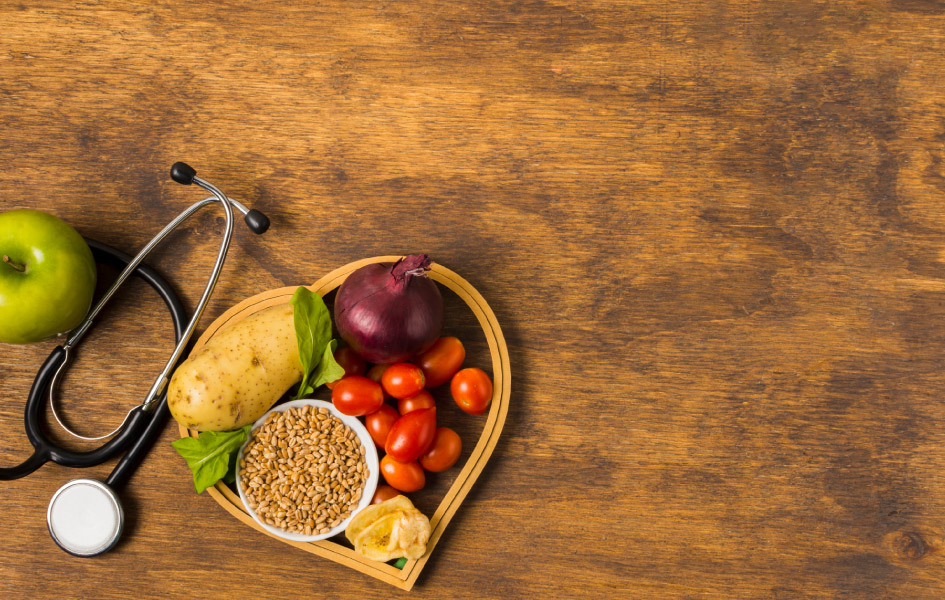As one of the great thinkers of our time, Naval Ravikant puts it — “A fit body, a calm mind, a house full of love. These things cannot be bought, they must be earned”.
Importance of Nutrition In Health Care
If you think about it, the above three attributes are not exclusive from one another. They go hand in hand and are requisites for living a physically, mentally and spiritually healthy life. One sure-fire way to attain a fit body and a calm mind is to maintain healthy eating habits. Can you recall the last time you had an unproductive day because you ate a little too much at the breakfast table? Don’t fret, It happens to the best of us.
Although it sounds cliché, we are what we eat!
Healthcare workers have long shifts and busy workloads, and it is typical for them to struggle with keeping nutritious foods on hand. Due to irregular breaks and restricted access to healthy options in canteens with limited opening hours, HCPs are more likely to engage in bad dietary practices and skip meals which could affect their cognitive function, mood, and reaction speed, potentially impacting patient safety and security.
Research has shown that doctors who have a healthy lifestyle are more likely to talk to their patients about it [Oberg & Frank, 2009] and patients are more likely to take an impression from such doctors [Frank, Breyan & Elon, 2000]. Healthy healthcare practitioners not only operate effectively but also help promote the healthcare system, which ultimately leads to the ultimate goal of medical practice: better patient care.
Food, Mood, and Everything in between
Food and mood exist in a somewhat parallel state. We are, after all, primal creatures. There are measures you can take to improve your diet and live a happier life. Let’s dig into them and find out if you can incorporate some of those in your day-to-day lifestyle.
Drink 3.5 liters of water a day
We know it sounds basic, and you might have given the same advice to your patients as well! But, that only reaffirms our point. Water releases stress and keeps your body hydrated.
We suggest a simple exercise — Note down the amount of water you drink after waking up to the time you go to sleep tomorrow. You will be surprised to find out how far our expectation is from reality.
Now that you have realized that you need to add more water to your everyday lifestyle, we advise you to keep a log of it and add a reminder on your phone or desktop to drink it on time. Various apps can help you do that, let us know if you want our advice on the best ones!
Take your Fiber
Fiber is often overlooked in our diets, but it is important to take it in proper amounts to sustain healthy eating habits. According to a recent study, when compared to individuals who ate a low-fiber scone, those who ate a scone produced with resistant starch (a form of fiber) had lower hunger levels for three hours after eating it. Taking the right amount of fiber can help to fight the urge for snacking.
Fiber also aids in the digestion of meals and the absorption of essential nutrients by the body. Some of the fiber-rich foods include fruits such as berries, pears, melon, and oranges, vegetables such as broccoli, carrots, and sweetcorn, and Wholegrain pasta, bread, and oats.
Pack a nutritious punch for lunch
It’s quite easy to fall into the trap of convenient meal options, such as the hospital cafeteria or the fast food shops around the corner. They are cheap, fast and convenient. We get that!
But, eating out might make it harder to keep track of your food consumption because pre-prepared items frequently have additional carbohydrates or fats that have no nutritional value. Bringing your own meals or snacks is a better option because you know exactly what is in those things. If you must go to the cafeteria, stock up on fruits and vegetables and avoid meals drenched in sauces or dressings.
It might be hard, but if you can keep track of the food you consume throughout the day, nothing better.
Avoid stress-eating
Remember when we talked about food and mood. This is the epitome of that. It is more psychological than physical. There are times when we try to suppress our stress or anxiety or other negative emotions through food, which obviously is not healthy. It’s quite a common pothole that we all fall into, nothing to be ashamed of. Though, the only way out of that pothole is through self-awareness and inner motivation.
You can read a thousand tips on the internet and watch a million videos on YouTube on how to maintain healthy eating habits, but until and unless you are mindful about what you eat and make conscious decisions, nothing will change.
Well, that took a dark turn. So let’s end this on a lighter note!
It all comes down to you, and we hope you found some of our tips useful. If you did, share this blog with your friends and family members who you think will also find it beneficial.
If you have some insider tips on maintaining a balanced diet, join my medical panel — and share it with other healthcare workers. As you know very well, sharing is caring.
Talk soon!











